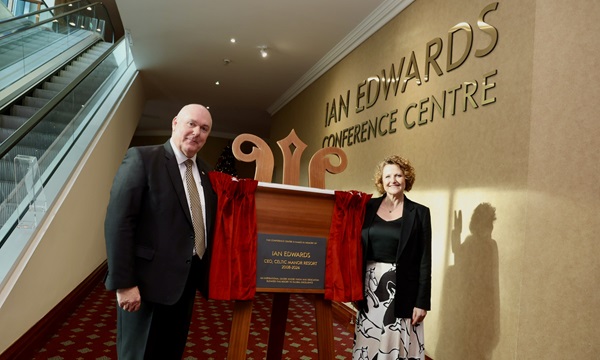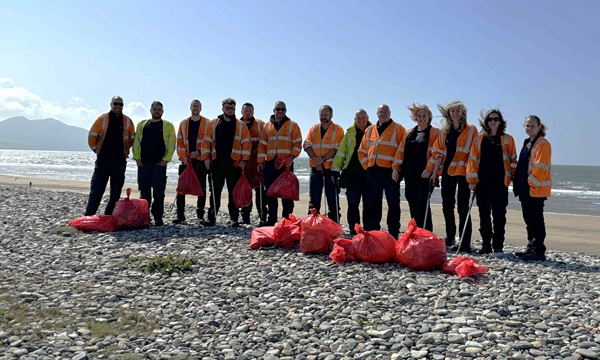A Swansea University researcher appeared at the Hay Festival to launch a new history of Welsh literature which explores fifteen centuries of literary production, from post-Roman Britain to post-devolution Wales.
Geraint Evans, a senior lecturer in English at Swansea University has edited The Cambridge History of Welsh Literature with Professor Helen Fulton of the University of Bristol. The book, which is part of a prestigious series of national literary histories from Cambridge University Press, was officially published on Friday 24 May.
Written by leading experts in the field, the book provides the first comprehensive, one-volume history of Welsh literature and Welsh writing in English against a backdrop of key historical and political events in Britain.
The literature of Wales is one of the oldest continuous literary traditions in Europe – and one of its most fascinating. The book examines the earliest surviving Welsh poetry, which was forged in the battlefields of post-Roman Wales and the ‘Old North' of Britain, and shows how the Welsh-language poets of today still write within the same poetic tradition.
It follows Welsh literature through into the modern era and examines how in the early twentieth century, Welsh writers in English outnumbered writers in Welsh for the first time, generating new modes of writing and a crisis of national identity which began to resolve itself at the end of the twentieth century with the political devolution of Wales within the United Kingdom.
Geraint Evans who is also a member of Swansea’s Centre for Research into the English Literature and Language of Wales (CREW), said:
“A number of Swansea academics have contributed chapters to the book, including Tudur Hallam and Robert Rhys (Department of Welsh), Geraint Evans and M. Wynn Thomas (Department of English / CREW) and Kevin Williams (Department of History).
“The number of contributors to this project who have links with Swansea University is a reflection of Swansea’s strength in this field and the proposed change to the secondary literature curriculum in Wales, to include Welsh authors and Welsh writing in English, is an outstanding example of the impact that Swansea and CREW are having on literary studies in Wales.”





















